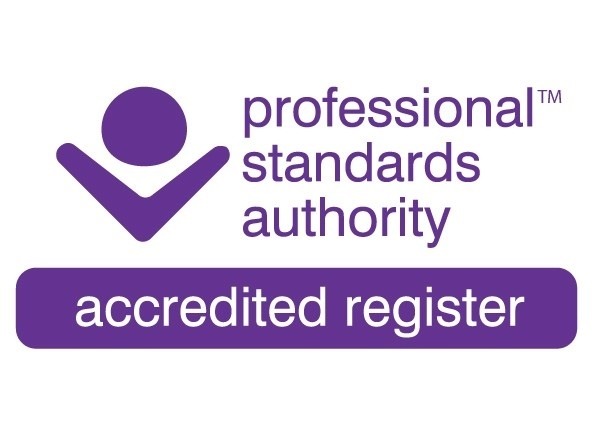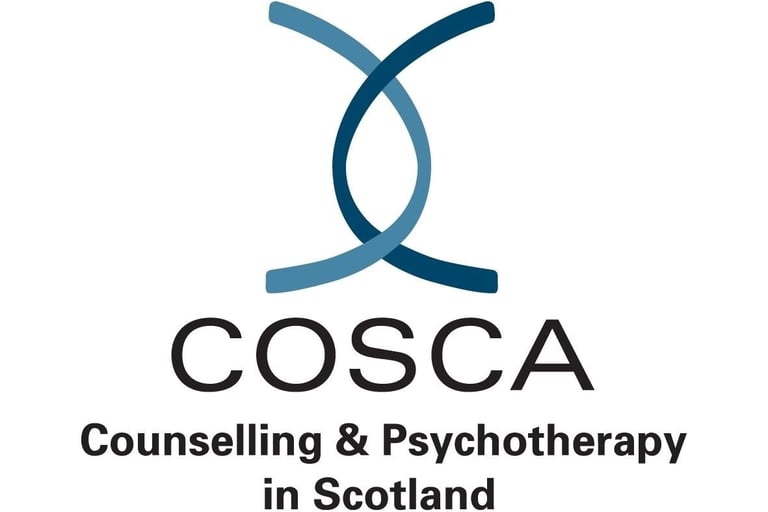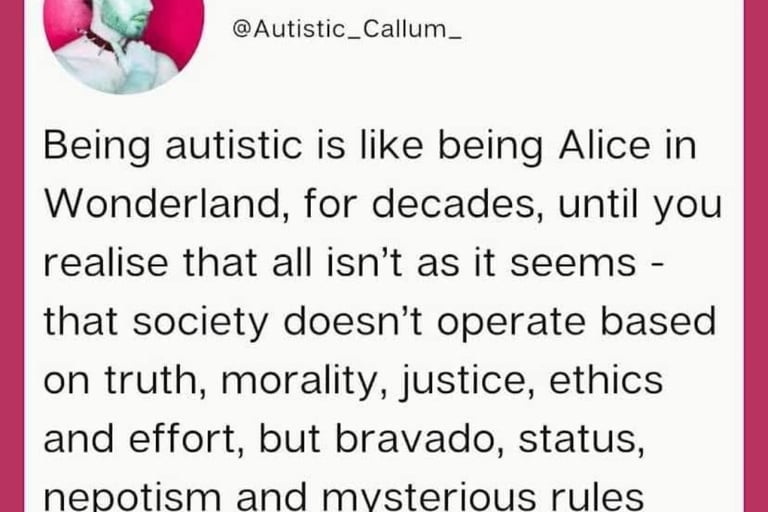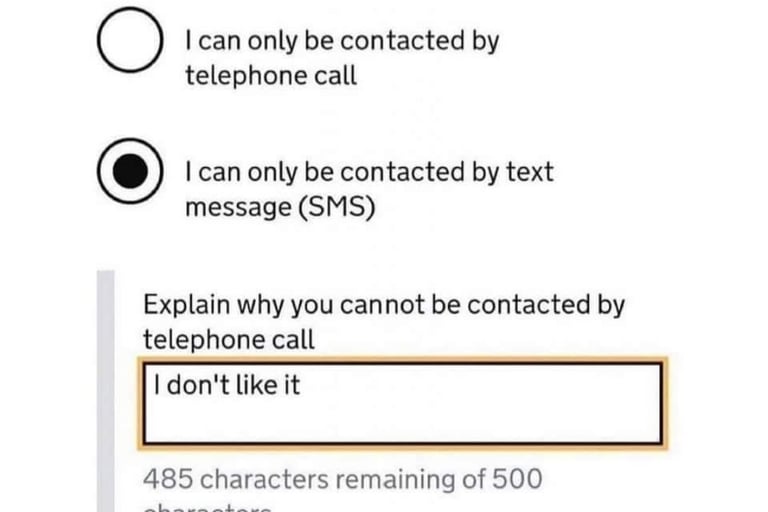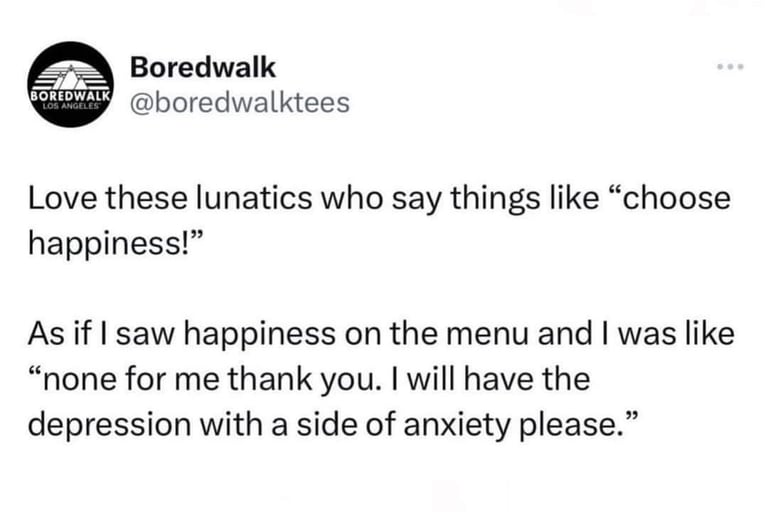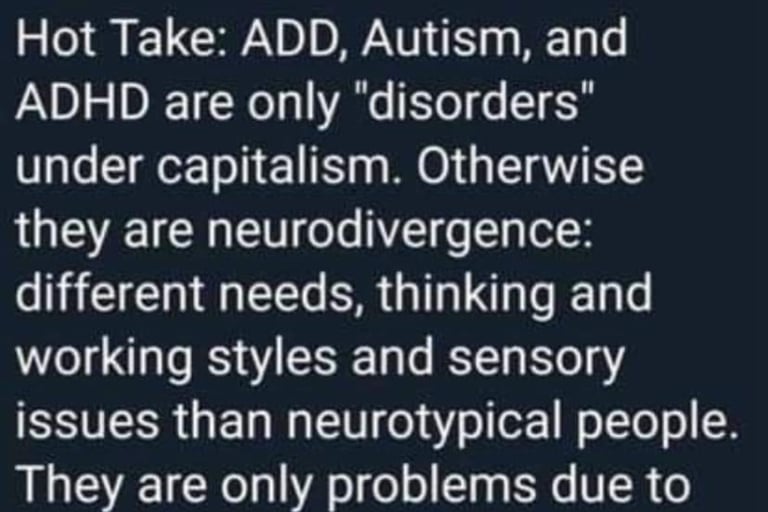This practice is not currently taking on new clients. As from Jan 2026

Neuro-Improved Counselling and Psychotherapy
Zero-stress, person-centred counselling, for neurodivergent young people and adults. Based in Elgin, Moray
Welcome!
★★★★★

Don't worry: you Do Not Need to read all of the many, many words on this page
★★★★★

I got carried away, trying to cram in every bit of information which I thought a person might need, if they were looking into counselling for the first time. And while some people will appreciate the detailed explanation, I know that many of us lack the energy, motivation or concentration to wade through much more than this paragraph.
★★★★★
If you already know that you would like to try counselling, with a neurodivergent therapist (Audhd), simply text or email me an idea of days/times that would suit you, and I'll let you know what I have available in that range.
I work within all of the hours ending in 'pm', and none of the hours ending in 'am'.
Scroll to the bottom of the page for contact details and session cost. Please note this site goes all wonky in desktop view, it is designed specifically for mobile devices. Please also don't worry about your 'level' of neurodivergence, if any aspect of the site resonates with you, you're in the right place...
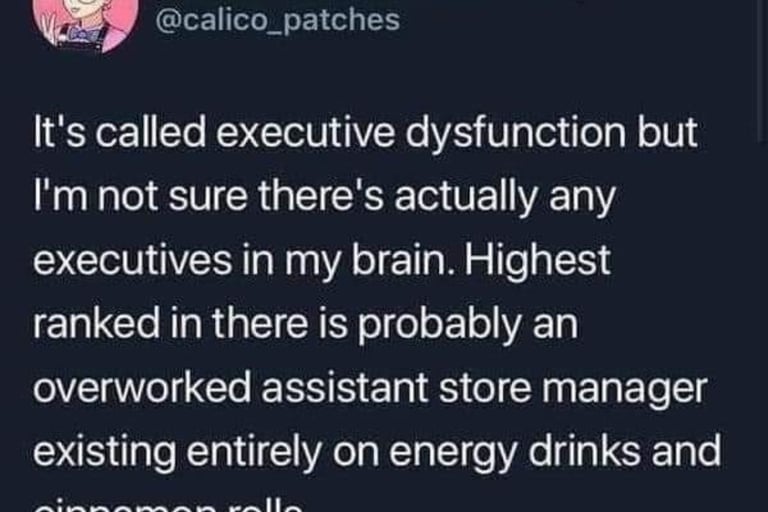

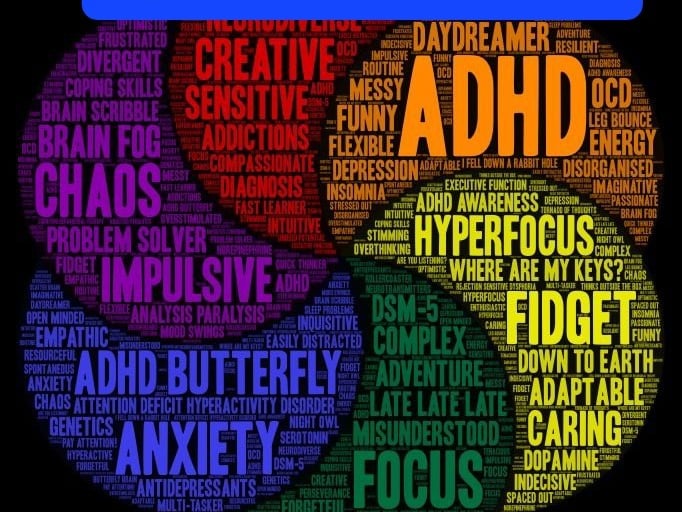

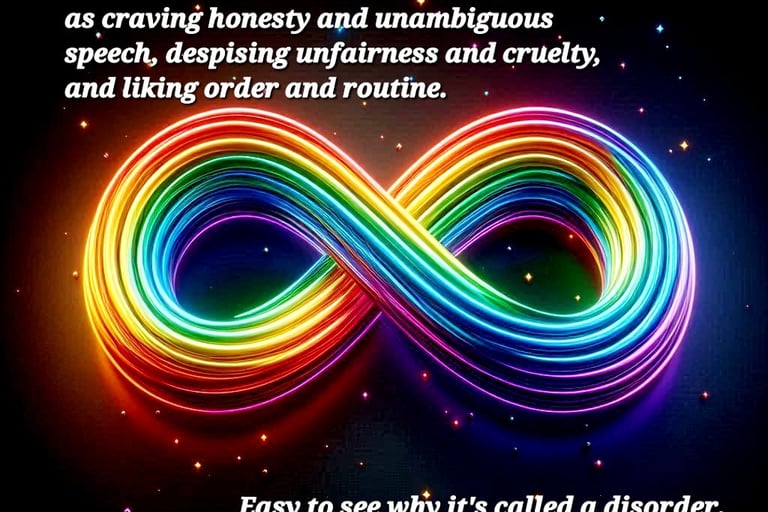

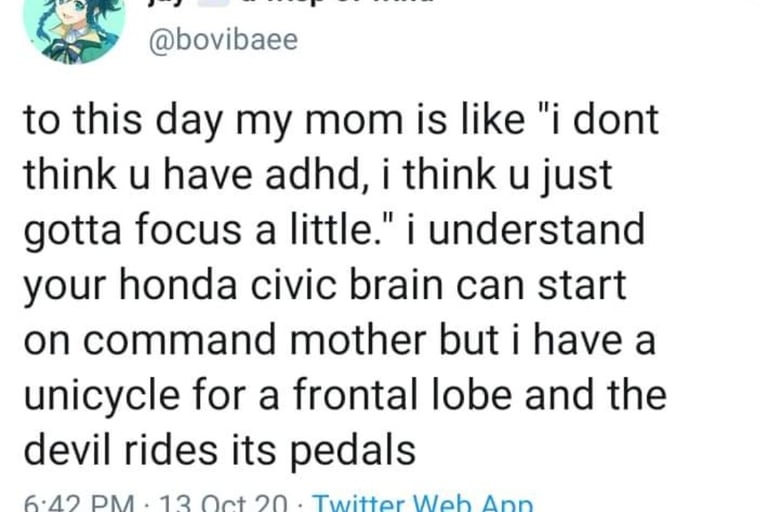


I'll begin with what Neuro-improved Counselling and Psychotherapy offers:
A tailored version of Person-Centred Counselling, designed primarily for neurodivergent young people and adults, with or without a diagnosis. An environment carefully designed to be pleasantly relaxing, and an underlying ethos of no pressure or stress.
N-iCaP is, in essence, a talking therapy. And talking therapies are most effective when the therapist is able to reach a certain depth of understanding of that which is being described to them. When both of us are somewhere on the extraordinary spectrum of neurodivergence, it immediately gives us the advantage of having at least a degree of common ground to start from.
I don't claim to have expert knowledge of every possible variation or combination of neurodivergent traits (it really is a vast and complex spectrum). However, I do understand what it's like to live with a combination of autistic and adhd traits, and the huge range of difficulties we can encounter, simply as a result of the world we live in not being one designed or run by spectrumites.
Counselling sessions are entirely about you, but that doesn't mean you can't ask me things. I'm more than happy to answer questions about my own particular special skills, such as having zero realistic understanding of how time works, thus being late for everything ever; being blessed with far too much sensitivity; and being a massive overthinker and procrastinator too. Also my particular triggers, cans, cannots, and coping methods, if that helps you to feel more understood in turn.
The basic goal, over time, is for you to understand/appreciate yourself rather better and, as a result, experience some degree of improvement in your life. You might, at various times:
• Feel a bit lighter, because you've got something 'heavy' off your chest;
• Feel a bit clearer, because you've released something which was going round and round in your head and driving you nuts;
• Feel a bit wiser, because you finally understand something that's puzzled or bothered you for a long time.
• Feel a combination of the above.
Another potential aim might be for you to feel like you're more in control, in general. A reduction in background levels of fear perhaps, an increase in self confidence, feeling less self-conscious all the time, or less easily embarrassed. 'Future you' may be better able to cope with life, because you'll understand 'former you' much more clearly; how your thoughts and actions were influenced, and by what, and why.
You may feel more aware of, and at ease with, things like your triggers, your coping mechanisms, and when and why you mask. And therefore more forgiving of yourself for always feeling tired.







To be clear, I am not there to try to change you in any way. My role is simply to provide the sort of space and time and circumstances which enable you to be able to think clearly about whatever it is you're living with, dealing with, or worrying about. Giving you the opportunity to really delve into things: thoroughly examine them and their potential roots, alongside possible changes and improvements. Doing that on your own is surprisingly difficult, because it's highly unlikely that you'd ever decide to sit down for an hour, specifically to think about nothing but you. And if you did, how easily distracted do you think you'd be?
Once your brain has been given this little dedicated period of introspection, it will naturally want to continue pursuing the various threads uncovered. As a result, little moments of insight will naturally begin to occur. Perhaps at completely random times, or perhaps at semi-regular ones, like always when you're showering.
This gradual process, of self-realisation and understanding, is arguably the key benefit to be obtained from counselling, because it can lead to such an enormously positive effect on so many aspects of your life.
Generic, person-centred counselling can often seem unappealing to ND folk. We can very easily combine a lack of understanding of precisely what it should entail (because exact descriptions are usually lacking in counsellors' websites), with a gloomy sense of certainty about what it likely will (from film and TV representations). All of which results in a low level of motivation to attend.
For example, we tend very much to not love sitting opposite strangers, in unfamiliar surroundings, having to try to talk about our feelings. Especially if there seems to be some kind of major expectation of eye contact.
What makes it even worse, is if we suspect that the other person is carefully watching out for things, like body language clues and revealing statements. Is it possibly in order to catch us out in some way? Or maybe so they can cleverly point them out to us, implying insightful discovery of our inner thoughts or personal secrets? Either way, it doesn't sound very appealing.


I hope it will reassure you to know that I am almost physically unable to think and make eye contact at the same time. The one somehow prevents the other. And if I'm required to speak, while I feel like I'm under scrutiny, I'm liable to say all the right words but in the wrong order. Or suddenly lose large chunks of my vocabulary altogether. Pursuing a coherent thread is almost impossible. It's horribly embarrassing, and being put in that situation contains zero therapeutic value. So there's none of that pressure in the N-iCaP room.
In order to combat any fears of the (sometimes true) typical counselling stereotypes, we will sit in relaxed comfort, instead of attentively bolt upright. Close enough that we can hear and see, but NOT directly opposite each other. There is no required expectation to make any eye contact; the neurotypicals can keep that, since they seem to love it so much.
During this zero-pressure, non-judgemental, All About You time, you are free to talk about whatever you want. In exactly as much detail as you want. If you need to examine something difficult, or traumatic, we can do that (at your own pace). If you'd rather describe your latest mono-focus pastime for a bit, or dissect a recurring dream, so be it. Just feeling heard and understood, for once, can be a pretty huge deal for some people, so take your time.
Common ND topics for the counselling room include:
• Social anxiety / awkwardness
• Masking-related exhaustion
• Relationship difficulties
• Struggling with social constructs and norms
• Overthinking / underthinking
• Intrusive thoughts and waves (e.g. of sadness, pointlessness, frustration)
• Time Blindness
• Procrastination






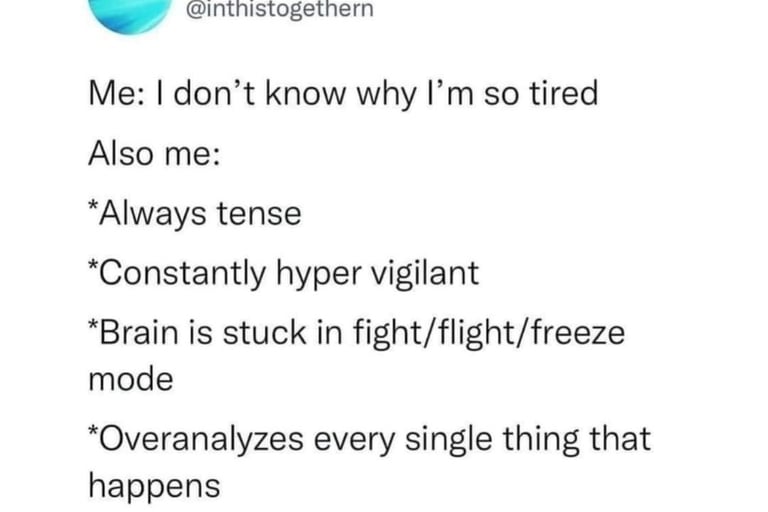

But everything you talk about in a counselling environment can begin to make your mental load feel a bit lighter. Because it's no longer trapped inside your mind. In the complete safety of the counselling room, a problem shared really can feel like a problem halved.
And everything you explain to me will become clearer to you, to some degree, because explaining something to someone else really is the single best way to maximise your own understanding of it.
It is highly likely that it will take several hours, or even days, for everything that comes up during a counselling session to really sink in, and be fully processed by your brain. Indeed, it's not uncommon for a lightbulb moment of deeper understanding to occur weeks, or even months, afterwards. Processing delays are a common feature of ND minds. It's why we often find ourselves replaying interactions and conversations later on, and realising all the social cues we missed, and things we could've said at the time but didn't. And the things we blurted out impulsively and wish we hadn't.
I'm more than happy to revisit previously discussed topics, even weeks later, should you wish to add new thoughts; or reconsider what you previously explored, but from a different angle.
I don't take notes, other than very basic attendance records for tax and insurance requirements, so you don't ever need to worry about what you say being recorded.
Having someone scribbling down everything you say can be very off-putting, both from a focus point of view, and a 'concern about what maybe being permanently recorded' point of view.
Confidentiality is a big part of any sort of counselling, because you need to feel able to talk freely about whatever you want. Obviously there are some things that The Law says should not remain confidential, such as involvement in terrorism, but I will run through with you the main points of the contract that will exist between us (known as the Therapeutic Agreement), containing all of the essential facts and dos and don'ts, before we begin. If you want to get a head start, the main points are on page 2 of this site, accessed via the link at the top right corner of this page.




Counselling rooms which are designed without taking common ND preferences into account can also be off-putting, making relaxed and effective therapy much more difficult to achieve.
For example, with N-iCaP you won't ever have to sit in a scary waiting room, because there isn't one.
There's actually no need for any kind of waiting area, because I only offer 2-3 appointment slots per day, and there's always at least an hour between each one. Tuning into someone else's life, with the level of concentration necessary to really connect and understand what they're going through, requires a fully charged, fresh and alert brain, every time. Having a strictly limited number of appointments per day (and week) is the only possible way I have found to achieve that. But it does mean that you are guaranteed a completely focussed and dedicated therapy session every time; never one that feels off-the-shelf and impersonal.
Please feel free to wear whatever you're most comfortable wearing.
If you want to keep a hat and coat on the whole time, so be it. Keep your gloves and scarf on if that works best for you. It's your session, so it's your choice.
Bring your comfort blanket/animal/headphones/whatever. It's all absolutely fine.
Lighting and heating can be adjusted to your preference. Big light off? Windows open or closed? Fan on or off? Up to you...
There are lots of things available to fiddle or doodle with while we talk and/or think, if you find that helpful. Ditto conversation starters: images, cards and such. There's a sand tray, beads, pots of play-doh, and kinetic sand. All of these things can help enormously, for stimming or just to fill the spaces and pauses between periods of conversation, or whenever brains need a little breather.
A notepad and pens are provided too, in case you find writing things down easier than saying them. There's also a shredder, in case you want zero risk of your notes being read by anyone.
Antibacterial hand-wash is freely available.
Session 1 might seem a bit daunting, I get it, because new place/ new person/ general unfamiliarity. But it really needn't be, because any pressure is on me, because I need to remember to say a bunch of stuff at the start, while you can just sit and examine the room contents.
I'll explain the basic concepts, and see to your individual comfort preferences regarding room layout, lighting, temperature etc. Hopefully this will lead to future sessions always happening in a comfortable and familiar layout.
I'll also offer a copy of the Therapeutic Agreement, which sets out the ground rules applicable to both of us, with regard to things like appointment times, missed sessions, confidentiality rules, and payment.
After that, control over session content is pretty much handed over to you.
Finally, some notes of what Neuro-improved Counselling and Psychotherapy doesn't offer, because there are some very confusing 'counselling' sites out there:
• Diagnoses and/or assessments. You need to consult a GP for these.
• Advice on what you should do / how you ought to live your life (that's always entirely up to you).
• Messages from dead people or angels (that sort of thing is unrelated to therapy, and anyone who could genuinely communicate with dead people or angels would not be permitted by the dead or THE ANGELS to charge money for doing it)
• Reiki.
My autism is irritated by people who pretend to be able to perform miracles and take money off others in return for pretending to perform a miracle for them. This does not mean I'm not happy to discuss ghosts or gods or elves or whatever else you might choose to believe in, in a completely open minded way. My lifelong quest for The Truth About Everything is far from complete and I'm always happy to add to my vast bank of accumulated knowledge. However, there are some awful (neurotypical) con artists out there, who are drawn to using unprovable mumbo jumbo to scam vulnerable people. So I like to reassure people that I'm not one of those.
NB I've called it Neuro-improved purely because I believe that people labelled as neurodivergent are actually far more likely to be an evolutionary step forward, rather than a divergence from a fully evolved norm of the species. This is based on a lifetime of observing the behaviours of neurotypicals and living in a society created and run by them. In my opinion, both are a long way from being of the highest imaginable standard.
Cost
Sessions cost between £30 and £60 (pay what you can on the day) for up to 90 minutes. Once a neurodivergent gets into a talking groove, there's zero chance of the industry-standard 50 minutes being anything like long enough.
I don't charge for cancellations and missed appointments (within reason), and a degree of lateness is absolutely not a problem. If I didn't understand these things what sort of a neurodivergent-supportive counsellor would I be?
If you have questions or hesitations, I can offer a free 30 minute intro session (just a zero obligation chat, so you can meet me and experience the room)
Contact details
Simon Dix, DipHE, BSc (Open)
Memberships: COSCA, PVG
Contact details:
Email: Simon@neuro-improved.co.uk
Text: 07407 247070
Counselling Qualifications:
DipHE Person-Centred Counselling and Psychotherapy (UHI)
Certificate in Counselling Children and Young People (University of Strathclyde)
Neuro-improved Counselling and Psychotherapy
Person-centred counselling and psychotherapy for neurodivergent young people.
All text copyright © 22.07.2024. Author: S Dix. All rights reserved. All images used with permission where required.
